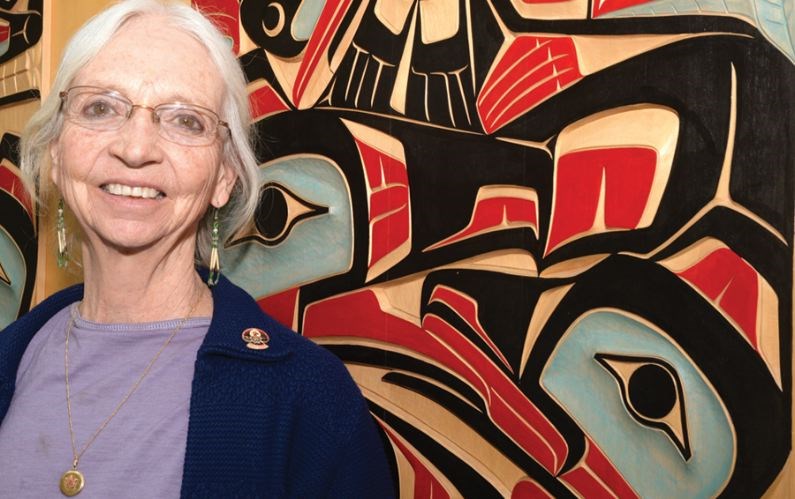A local First Nations professor will be getting an early retirement gift after being recognized with a career achievement award for the impact of her research on the non-academic community.
"I felt utterly humbled," said Antonia Mills, who has been teaching at the University of Northern B.C. for more than 20 years.
The Confederation of University Faculty Associations of British Columbia announced Mills won the Paz Buttedahl Career Achievement Award in March.
"My goal for my career has been to try to inform students and the public about the importance and the value of first nations perspectives of the need to look after the environmental integrity of everything and see the spiritual component in everything," said Mills, adding there's still work to do in that regard.
Mills research focuses on First Nations land claims, religion and law, and reincarnation beliefs and cases.
The latter has been a lifelong interest, spurred by research with the Beaver Indians in northeast B.C. back in 1964 as a Harvard PhD canadidate. Since then she's published two books (with another on the way) and variety of articles on the subject of reincarnation.
"I find it's just very, very, very deep topic," said Mills, who continued her fieldwork with the Beaver Indians throughout her career. "I was surprised and impressed because I hadn't known that that was a part of indigenous peoples' world view previously.
"It feels like a real privilege to get to document the specific cases that keep on happening. That's one of the reasons that the book I've been working on hasn't been finished," she said with a laugh.
The case of a Gitxan boy sticks out to her for his strong memory of a past life.
"He's come back as his great grandfather," she said. "He also had a birthmark - that's another feature of some of the cases - a birthmark that related to a wound on his great grandfather, but just had so, so much to say as a little kid."
Reincarnation, she said is regarded by First Nations as a fundamental mechanism in the whole cosmos.
"The importance of taking the life of any fish or any moose or any other kind of animal or any plant, so that it will want to come back and feed you again. To take it with respect, that's an essential part of the worldview," said Mills, who helped launch experiential learning courses at UNBC that have built a traditional dugout cottonwood canoe and a Dakelh-style pit house.
Mills has also travelled to India to research reincarnation. With indigenous communities she said people most often come back into the same family. Some communities have stronger cases than others. Some First Nations were discouraged from the belief, but even with that outside pressure, it didn't always produce the desired result, Mills said.
"It's really interesting the extent to which many First Nations don't see any contradiction whatsoever between now being Christian and continuing to experience reincarnation cases."
For those who resist the concept of reincarnation, Mills refers to the research including that of now dead Ian Stevenson, a pioneer on the subject.
"There's a lot of material that people can look at to assess the kind of things that are going on. I did a study comparing children who remember previously lives and children who have imaginary playmates," she said.
"It's something that emerges in non-native cultures as well but often people don't know how to interpret it because it hasn't been a part of the western culture for so very long."
Mills is set to retire in June. A celebration is planned for her on Thursday at 3:30 p.m. in the Administration Building Atrium.



